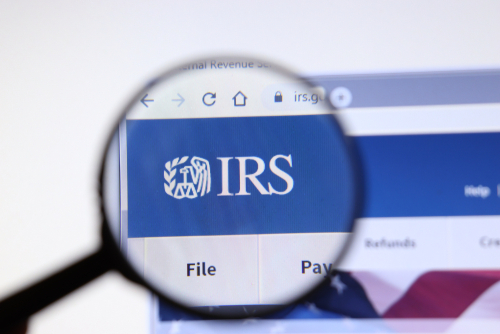U.S. Sen. Mike Crapo (R-ID) filed an amendment that seeks to block expanding taxpayer information reporting requirements for financial institutions.

The amendment is in response to a legislative proposal that says financial institutions should be required to report additional accountholder information to the Internal Revenue Service.
“The IRS financial institution reporting requirement forces financial institutions to turn over detailed bank account information to the IRS based on vague and ‘flexible’ criteria, such as a $600 threshold and account inflows and outflows, which are determined by the IRS,” Crapo, ranking member on the U.S. Senate Finance Committee, said. “This time-draining burden disregards banking privacy in order to squeeze more resources out of responsible Americans and entrepreneurs. It subjects law-abiding Americans to more intense targeting from the IRS and additional data collection, a concern that was recently amplified by a leak of private taxpayer information out of the IRS. I have long been critical of big data collection activities and oppose turning banks and brokers into government tax collectors.”
Crapo’s amendment would block the monitoring and reporting of taxpayer information to the IRS by financial institutions about deposits and withdrawals made by any individual or business. It has the support of several industry groups, including the Independent Community Bankers of America, Credit Union National Association, American Bankers Association, and National Association of Federally-Insured Credit Unions.
Privacy concerns at the IRS have only been amplified by the egregious apparent leak of taxpayer information out of the Agency, with data ending up in the hands of a news outlet that reported sensationalized and misleading claims about taxes paid by named individuals.
“Banks, credit unions, and other entities would be required to annually report to the IRS the gross inflows and outflows of account holders (businesses and individuals) with a breakdown for cash, transactions with a foreign account, and transfers to and from another account with the same owner,” CUNA officials wrote in a letter to Crapo. “CUNA remains concerned about the effect this proposed new requirement will have on credit unions. Privacy and data security are paramount issues. Whether it is the massive data breach at the federal Office of Personnel Management in 2014 or this year’s IRS leak of federal tax returns of many wealthy Americans, CUNA remains doubtful that such data will be safe and private.
CUNA adds that this new proposal would especially burden smaller credit unions due to the increased costs of software upgrades, staff training, and other resources.
“Credit unions and other financial institutions already churn out many federal tax information reporting forms,” the letter reads. “This new requirement further puts credit unions in the position of further policing their members and account holders. CUNA believes that better tax compliance can be achieved through other means such as the IRS using its existing audit authority.”